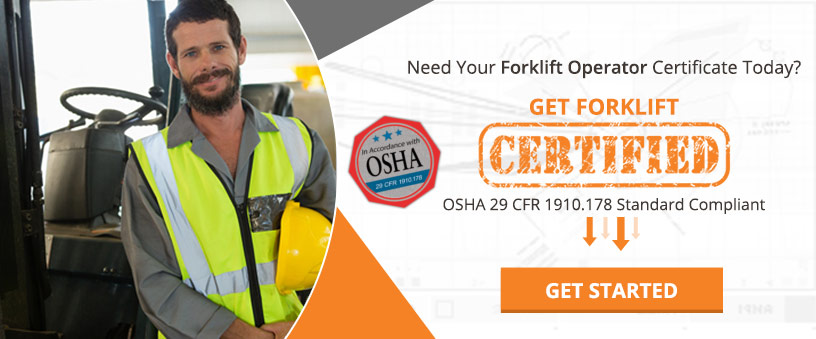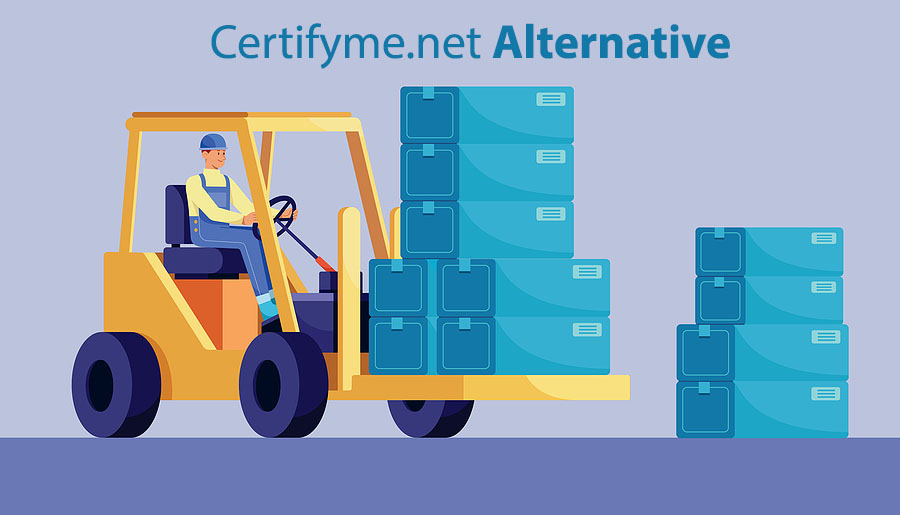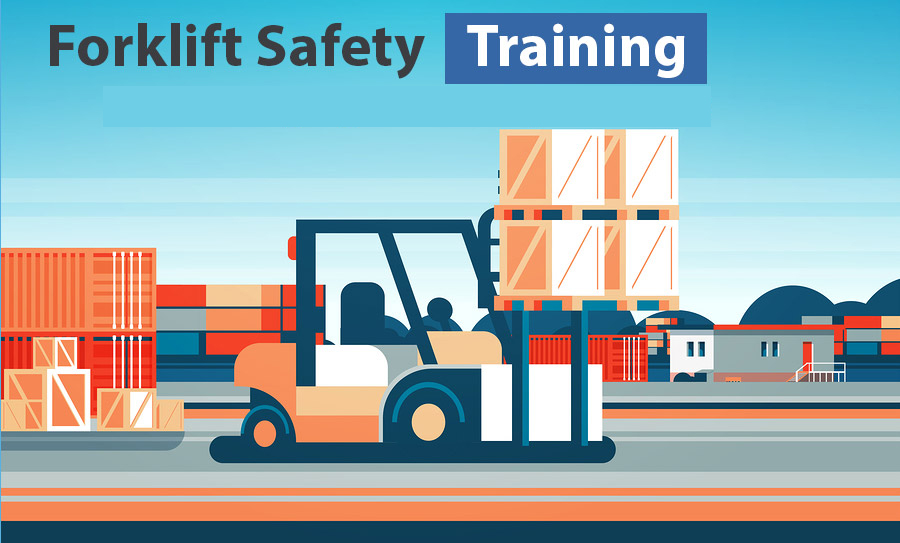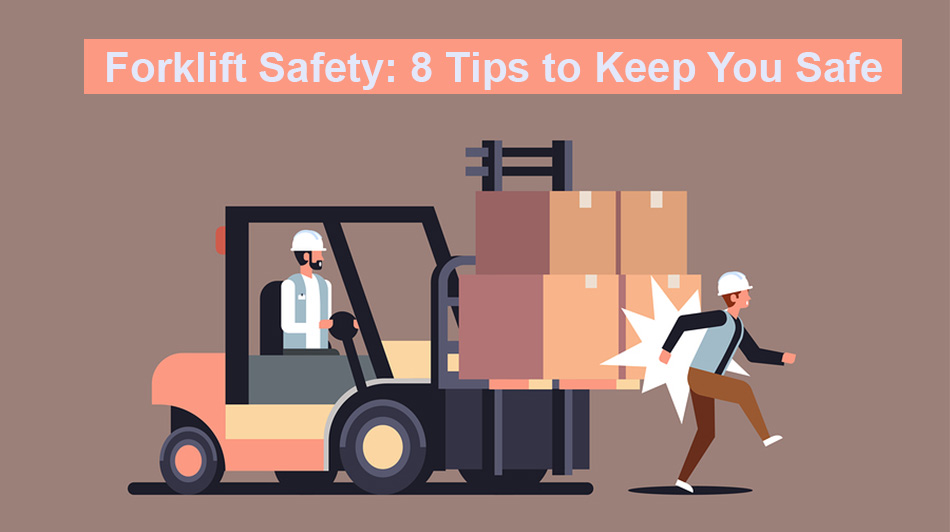Forklift Certification Cost: Online vs. In-Person Training Comparison
Safety is critical in any workplace where forklifts are used. That’s why OSHA requires forklift operators to receive comprehensive forklift training. Whether you’re a job hunter looking to boost your job prospects or an employer ensuring workplace compliance, understanding the forklift training process and forklift certification costs is essential.
If you’re an individual job hunter, getting forklift certified opens up new career opportunities and can significantly increase your earning potential. Employers clearly prefer candidates who already demonstrate safety awareness, operational knowledge, and a drive for personal development.
Employers have a legal responsibility to provide forklift training for their workers. Investing in proper forklift training not only ensures compliance but also reduces the risk of incidents, injuries, and costly damage. This translates into a safer and more productive work environment.
Now, let’s explore forklift certification prices and costs associated with training.
Key Factors That Affect Cost
Understanding the factors influencing forklift certification costs can help you make the best choice based on your circumstances, budget, and other needs.
One of the biggest factors that will affect costs is whether the training is completed in person or online. There are different ways to complete training, both in person and online, but for now, let’s take a deeper look at online training providers vs. live training centers.
Live Training Centers
The costs for receiving a forklift certification at a live training center are typically the highest. This is because training centers have quite a bit more overhead than online training providers, including the costs to maintain their facility, equipment, and instructors.
There are also indirect monetary and time costs associated with live training centers, including travel time and expenses, lost wages, etc.
If you’re an employer, the costs are more significant. This is because you’re disrupting your operations by sending your employees offsite, leaving you shorthanded.
However, live training centers do have benefits. The most notable is that the operator can get some hands-on experience driving a forklift, even though it’s typically minimal.
Online Training
Online forklift certification providers offer a more flexible and more affordable alternative to live training centers.
Forklift courses can be completed at your own pace, eliminating the need for travel and rigid schedule commitments.
While online training may lack the fully immersive, hands-on component of live training, reputable providers incorporate interactive simulations and comprehensive evaluations to ensure knowledge acquisition and retention.
For employers, online forklift training can be used to implement a blended learning approach, which combines the benefits of online and live training.
With a blended learning approach, you use online training to cover the classroom portion of the certification process for your operators. Once the classroom portion is completed, you have one or more internal forklift instructors/evaluators complete the practical portion of the training in your workplace. Forklift train-the-trainer programs are available to help qualify internal candidates as instructors and practical evaluators.
On-the-Job Training and Practical Evaluations
It’s important to note that the employer will still need to provide on-the-job training and a practical evaluation regardless of whether an operator completes forklift training online or at a live training center. This is because each workplace and piece of equipment is different, and all possible scenarios cannot be covered in external training.
You should include this in your forklift certification price evaluation, especially if you’re an employer sending operators offsite for training. This is because you’ll still need to spend time and resources completing the forklift certification process at your worksite.
Average Forklift Certification Cost Ranges
Forklift certification costs can vary, but it’s helpful to have a ballpark understanding to plan your budget. Factors like location, the reputation of the provider, course length, and whether training is online or in-person all play a role in the final price, as discussed.
Let’s have a closer look at forklift training prices.
Online Forklift Certification
Online forklift certification generally falls between $50 to $200. This offers the most affordable route to certification.
Some providers offer special deals and discounts for multiple employees or package their forklift certification with other safety courses.
For example, with ForkliftTraining.com, employers can take advantage of discounts of up to 50% off when purchasing multiple training registrations.
Additionally, individuals can bundle Aerial Lift Certification with their forklift course to receive an instant multi-course discount.
Caution with “Too Good to Be True”: Be wary of extremely low-priced courses (under $50). They may cut corners and not provide the full OSHA-compliant training necessary for safe forklift operation.
Some live training centers may offer discounts when attending multiple training courses or when taking shorter “refresher” courses for experienced operators.
Live Forklift Training
In-person forklift training courses typically range from $100 to $300, potentially even higher depending on several factors.
The duration of the course (half-day vs. full day), the size of the class (individual vs. group training), the location of the training center, and their overall reputation can all influence the cost.
Remember, there are additional indirect costs with live training, including travel time, expenses, mileage, and more. So, make sure you include all relevant costs to ensure you remain within your budget.
Hidden Costs to Consider
Be aware of hidden costs that can add to the overall forklift certification price.
While online courses might have some additional fees for materials or certificates, live training often incurs more indirect costs.
Consider these potential extra expenses:
Travel: Gas, public transportation, or parking fees for traveling to and from the training center.
Lost Wages: Missed work hours for in-person training unless your employer provides paid time off.
Meals & Accommodations: Costs for food or even overnight stays if the training center is far from your location.
Opportunity Cost: The time spent traveling and in class could be used for other productive work or personal tasks.
Lost Productivity: If you’re an employer, sending employees offsite for training can result in disruptions to your operation if you’re left short-handed.
Tips for Saving Money
Getting forklift certified or training your forklift operators doesn’t have to break the bank.
Here are some strategies to find the best forklift certification price for your budget.
Negotiate with Your Employer: If you’re getting certified for your job, inquire whether your employer offers financial assistance or reimbursement for training costs.
Price Comparison: Thoroughly research different training providers, both online and in-person. Compare prices, course content, and any additional features offered.
Look for Online Deals: Many reputable online providers offer discounts, promo codes, or bundle packages combining forklift certification with other safety training modules.
Group Training Discounts: If multiple employees in your workplace require certification, explore forklift training providers that provide volume discounts for training multiple employees.
Important Note
While saving money is a consideration, never compromise on safety.
Always ensure your chosen provider, regardless of format, adheres to OSHA standards and delivers the necessary training for safe and efficient forklift operation.
Conclusion
While it’s tempting to focus solely on finding the cheapest forklift certification option, it’s crucial to remember that price isn’t the only factor to consider. Your primary goal is to receive comprehensive training that fully complies with OSHA forklift certification standards.
Choosing a low-quality provider that cuts corners on training might save you a few dollars upfront, but it puts you and your coworkers at risk.
A high-quality, reputable provider, whether online or in-person, can equip you or your workers with the knowledge and skills needed to be safe and efficient forklift operators—that investment is invaluable.
If cost is a major concern, online training is likely your most budget-friendly option. It offers flexibility and convenience while also minimizing extra expenses associated with in-person training.


